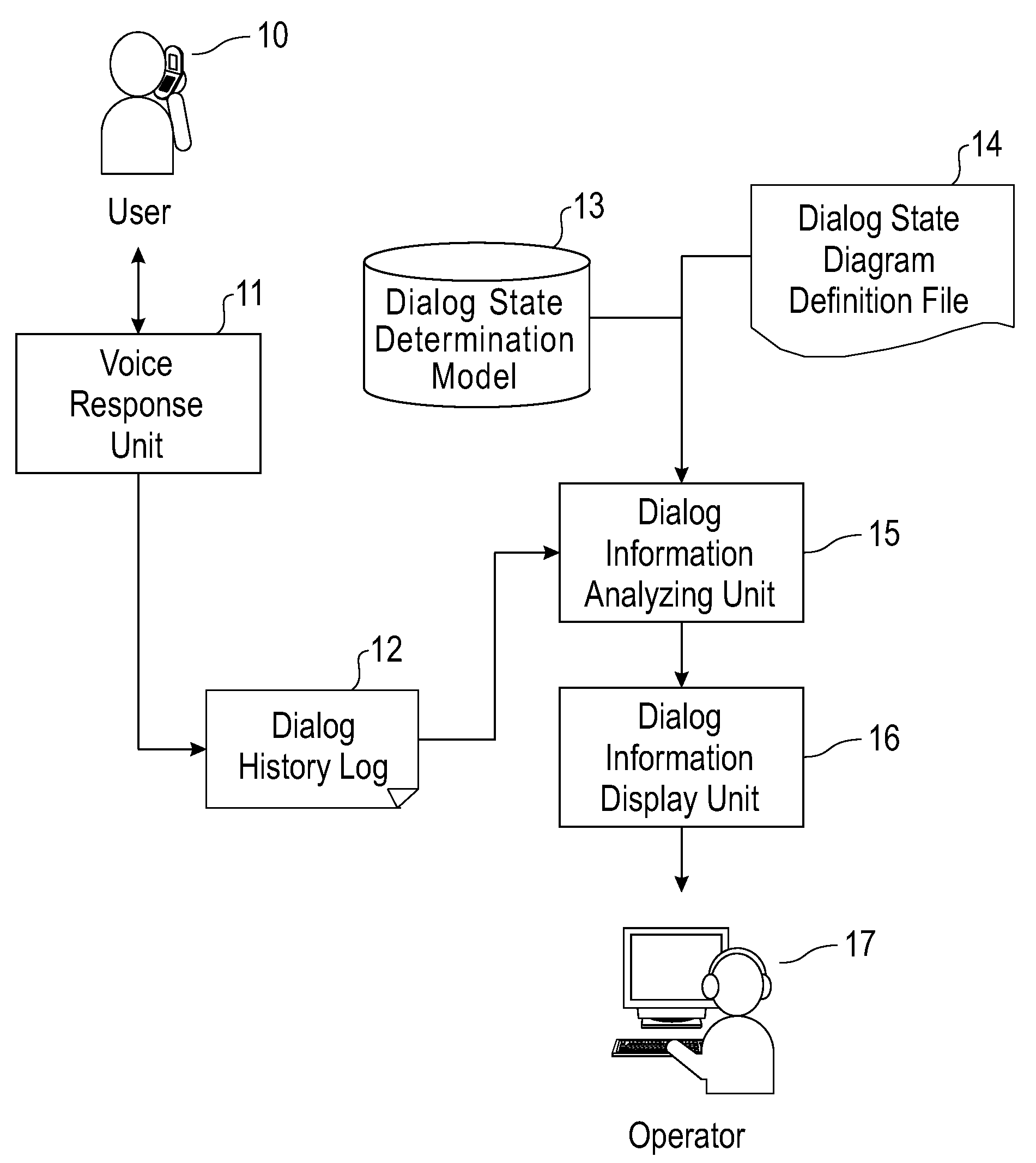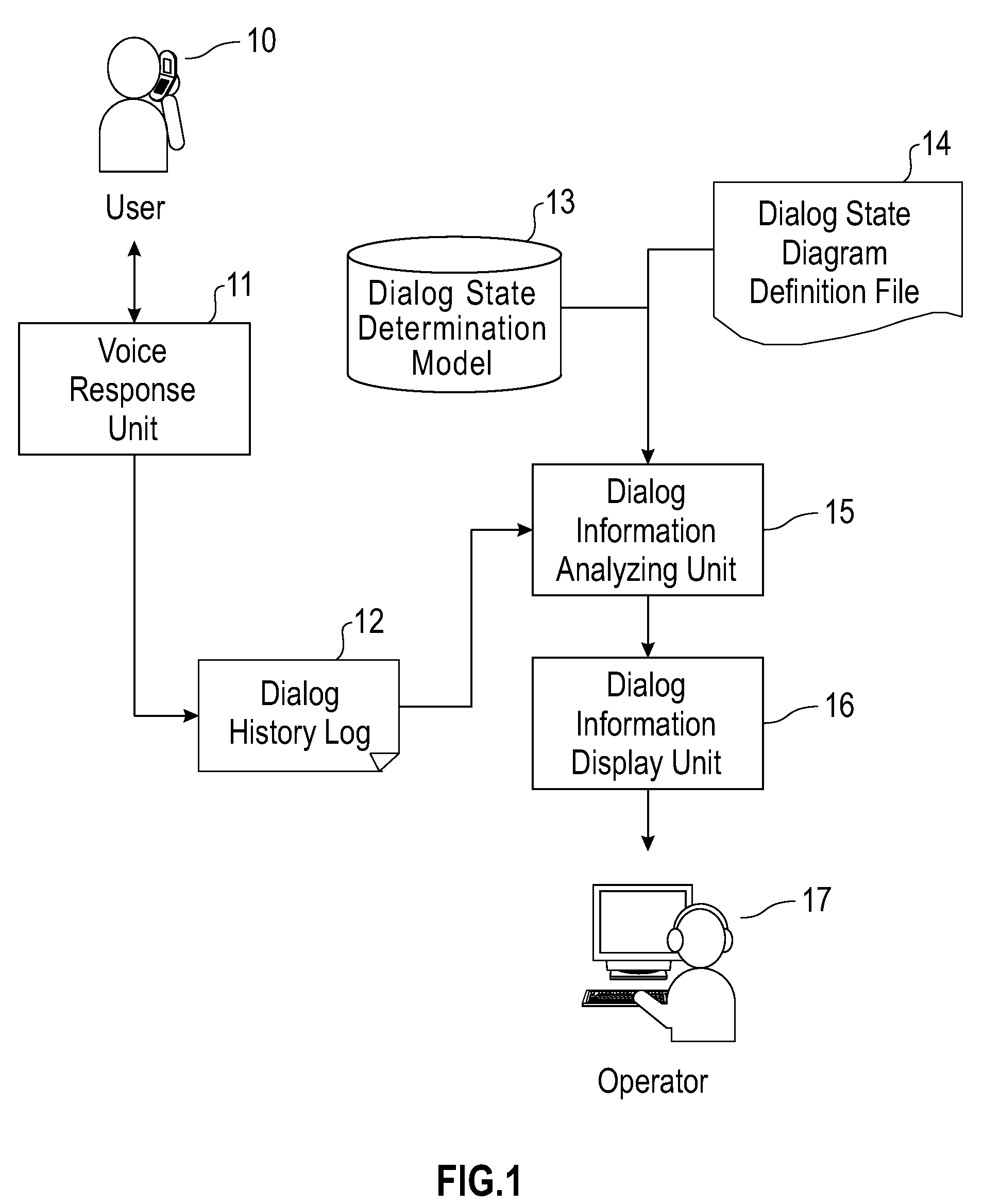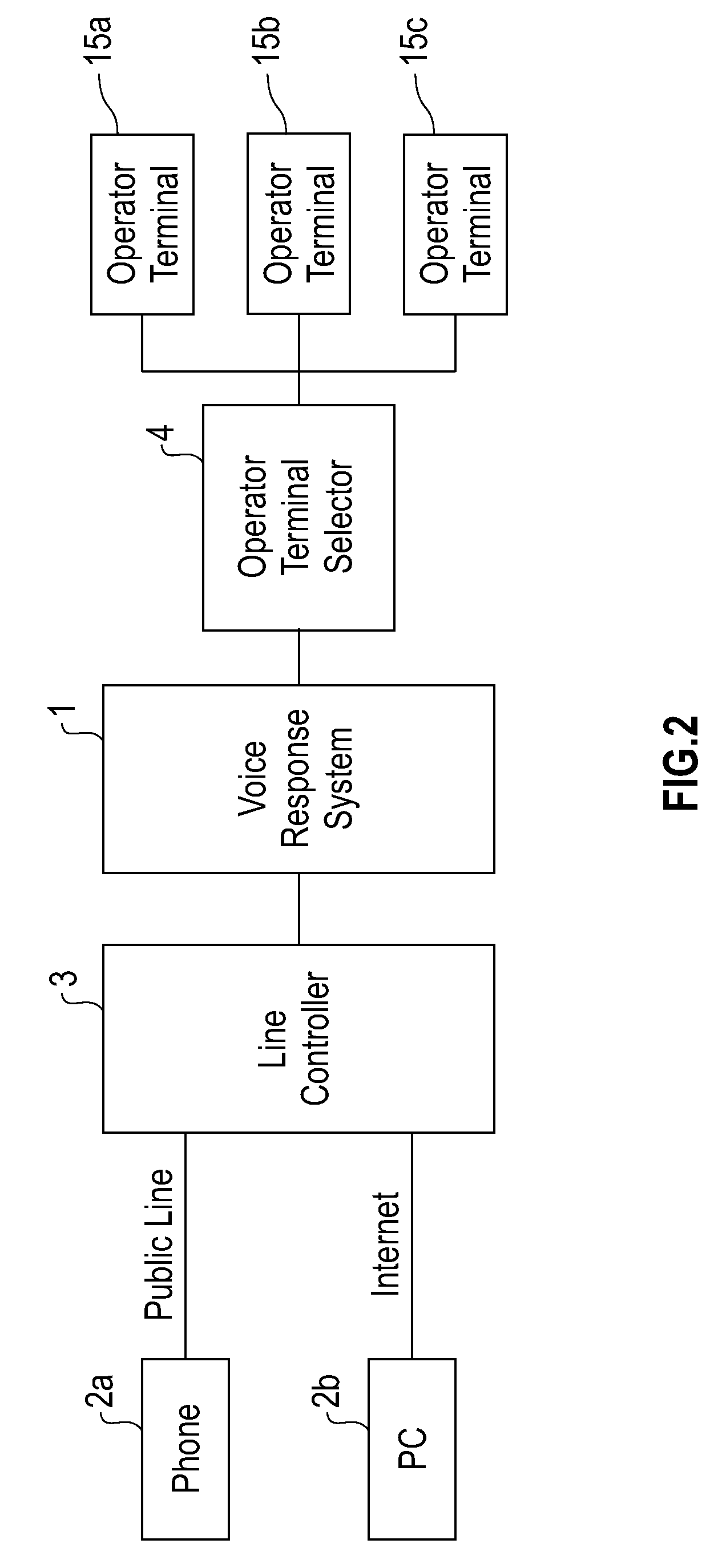Voice response system
a voice response and voice technology, applied in the field of automatic voice response systems, can solve the problems of frustrating and inconvenient routed to an operator, voice response systems may not be able to provide an appropriate automatic response, and speech recognition software failures, etc., to achieve the effect of quick understanding the stag
- Summary
- Abstract
- Description
- Claims
- Application Information
AI Technical Summary
Benefits of technology
Problems solved by technology
Method used
Image
Examples
operation example 1
[0129]If
[0130]Pr(State 1 |ResID(t), ResID(t−1))=0.5,
[0131]Pr(State 2 |ResID(t), ResID(t−1))=0.3, and
[0132]Pr(State 3 |ResID(t), ResID(t−1))=0.2,
max(0.5, 0.3, 0.2)=0.5 is obtained. This gives S(t)=State 1.
operation example 2
[0133]If there is no Si that satisfies Pr(Si|ResID(t), ResID(t−1))>0, and
[0134]Pr(State 1|ResID(t))=0.2,
[0135]Pr(State 2|ResID(t))=0.7, and
[0136]Pr(State 3|ResID(t))=0.2,
max(0.2, 0.7, 0.2)=0.7 is obtained. This gives S(t)=State 2.
[0137]Generally, the dialog state determination model 13 can be expressed as S(t)=F(log for time “t0” through time “t”, dialog state for time “t0” through time “t”), where “t0” is a service start time, “t” is a current time, S(t) is a current dialog state, and F is a function for determining the current dialog state. In the example described above, input parameters for F are ResIDs (response sentence IDs) and past state S. It is possible to add results of recognition of user's speech to these input parameters. The dialog state determination model 13 may be a statistical model in which learning is done from an existing log as in the case of the example above, or may be a rule-based model as described below.
[0138]The following is a description of a procedure ...
example 3
DIALOG EXAMPLE 3
[0153]System: Welcome to the train information system. How may I help you?
[0154]User: What is the last train from Tokyo to Kobe?
[0155]System: The last train from Tokyo to Kome?
[0156]User: To Kobe, please.
[0157]System: The last train from Tokyo to Kome?
[0158]User: To Kobe.
[0159]System: The last train from Tokyo to Konu?
[0160]FIG. 7 illustrates a screen displaying a dialog state of Dialog State 1 in the above Example. The dialog state is “last train search confirmation in progress”46. Of items already entered, “departure station”51 has a high reliability, “arrival station”52 has a low reliability, and “date of use”53, “train name”55, and “train type”56 are entered as default values. Also, it is indicated that the user has gone through the states of “service start”41, “service selection in progress”42, and “last train search input in progress”45 to reach the current dialog state “last train search confirmation in progress”46. In this example, “Kobe” that the user wishes...
PUM
 Login to View More
Login to View More Abstract
Description
Claims
Application Information
 Login to View More
Login to View More - R&D
- Intellectual Property
- Life Sciences
- Materials
- Tech Scout
- Unparalleled Data Quality
- Higher Quality Content
- 60% Fewer Hallucinations
Browse by: Latest US Patents, China's latest patents, Technical Efficacy Thesaurus, Application Domain, Technology Topic, Popular Technical Reports.
© 2025 PatSnap. All rights reserved.Legal|Privacy policy|Modern Slavery Act Transparency Statement|Sitemap|About US| Contact US: help@patsnap.com



